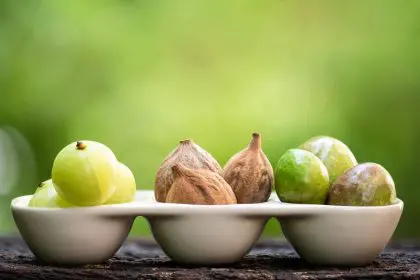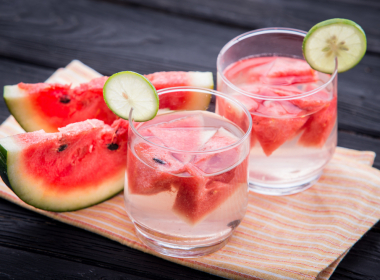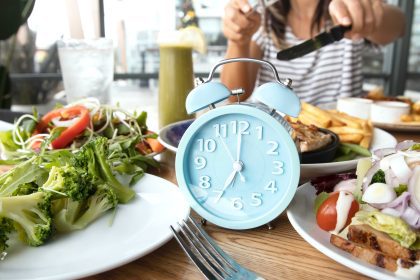You sit down to a delicious meal and automatically reach for your glass of water. It seems natural, even healthy, to stay hydrated while eating. But this common habit might be sabotaging your digestion, nutrient absorption, and overall comfort in ways you never realized.
The practice of drinking water with meals has become so normalized that most people never question whether it’s actually beneficial for their digestive health.
How water dilutes your digestive power
Your stomach produces hydrochloric acid and digestive enzymes specifically designed to break down food at optimal concentrations. When you drink large amounts of water during meals, you’re essentially diluting these powerful digestive juices, making them less effective at their job.
Think of it like trying to clean a dirty dish with watered-down soap — it’s going to take longer and be less effective than using the soap at full strength. Your stomach acid needs to maintain a specific pH level to properly break down proteins and activate digestive enzymes.
When you dilute stomach acid with water, food sits in your stomach longer because it takes more time and energy to break down. This can lead to feelings of heaviness, bloating, and discomfort that many people just accept as normal after eating.
The digestive process becomes inefficient, requiring your stomach to work harder and longer to achieve what it could do more easily with concentrated digestive juices.
The nutrient absorption problem you can’t see
Proper digestion is essential for nutrient absorption, and when your digestive process is compromised by diluted stomach acid, your body can’t extract nutrients from food as effectively. This means you could be eating nutritious meals but still not getting optimal nutrition.
Proteins need strong stomach acid to break down into amino acids that your body can use. When acid is diluted, protein digestion becomes incomplete, potentially leading to deficiencies even if you’re eating adequate protein.
Minerals like iron, calcium, and B12 require acidic conditions for proper absorption. Diluted stomach acid can interfere with this process, contributing to nutritional deficiencies that might not be apparent until they become severe.
You might be eating all the right foods but not getting the full nutritional benefit because your digestive system isn’t operating at peak efficiency.
Bloating and discomfort that ruins your meal
Many people experience bloating, gas, and stomach discomfort after meals and assume it’s normal or related to what they ate. But drinking water with meals can be a major contributor to these uncomfortable symptoms.
When water dilutes digestive juices, food ferments in your stomach longer than it should. This fermentation process produces gas, leading to bloating and discomfort that can last for hours after eating.
The additional liquid volume in your stomach can also create physical pressure and fullness that feels uncomfortable. You might feel overly stuffed even when you haven’t eaten that much food.
Some people develop a pattern of drinking more water to try to relieve digestive discomfort, not realizing that the water itself might be contributing to the problem.
How timing changes everything
The solution isn’t to never drink water — it’s about timing your water intake strategically. Drinking water 30 minutes before meals can actually aid digestion by ensuring you’re properly hydrated and helping your body produce adequate digestive juices.
Waiting at least 30-60 minutes after eating to drink water allows your stomach to complete the initial digestive process without interference. This timing gives your digestive system the best chance to work efficiently.
If you absolutely must drink something with meals, small sips of room temperature water are less disruptive than large glasses of cold water, which can shock your digestive system and slow down the process even more.
The cold water double whammy
Cold water with meals creates additional digestive stress beyond just dilution. Your stomach has to warm cold liquids to body temperature before digestion can proceed normally, using energy that could be directed toward breaking down food.
Cold temperatures can also slow down digestive enzyme activity and reduce blood flow to digestive organs. This compounds the dilution problem and makes digestion even less efficient.
Room temperature or slightly warm liquids are less disruptive to the digestive process, though the timing of consumption still matters more than temperature.
Cultural wisdom backed by science
Many traditional cultures have long practiced eating and drinking separately, suggesting that our ancestors understood something about digestion that modern habits have forgotten. Ayurvedic medicine and Traditional Chinese Medicine both emphasize not drinking large amounts of liquid with meals.
Recent research in gastroenterology supports these traditional practices, showing that meal timing and liquid consumption can significantly impact digestive efficiency and nutrient absorption.
Modern eating habits often prioritize convenience over digestive health, but simple timing adjustments can make a significant difference in how you feel after meals.
Breaking the automatic habit
Most people reach for water during meals out of habit rather than actual thirst. Breaking this automatic behavior takes conscious effort but can lead to noticeable improvements in digestive comfort.
Start by ensuring you’re well-hydrated before meals so you don’t feel thirsty while eating. Keep your water glass away from your plate to avoid mindless sipping.
If your mouth feels dry during meals, it might indicate that you’re eating too quickly or not chewing thoroughly enough. Slowing down and chewing more completely can reduce the urge to drink water during meals.
What to do if you’re really thirsty
If you feel genuinely thirsty during meals, take small sips of room temperature water rather than drinking large amounts. Focus on staying hydrated between meals rather than trying to catch up during eating.
Sometimes the sensation of thirst during meals is actually your body asking you to slow down and chew more thoroughly. Well-chewed food is easier to digest and may reduce the feeling that you need water to help it go down.
The simple change that improves everything
Separating water intake from meal times is one of the simplest changes you can make to improve digestive health. Most people notice reduced bloating, better nutrient absorption, and improved energy levels within a few weeks of changing this habit.
This adjustment doesn’t require special foods, supplements, or complex protocols — just a shift in timing that allows your digestive system to work as nature intended.
Try drinking water 30 minutes before meals and waiting at least an hour after eating to hydrate. Your digestive system will thank you for giving it the best possible conditions to do its job efficiently.
















